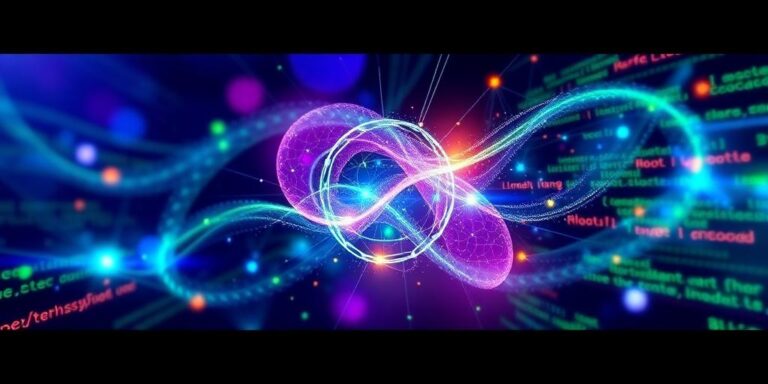Software for Quantum Computers: A New Programming Paradigm (2028+)
The realm of quantum computing, once relegated to the theoretical, is rapidly approaching practical realization. As quantum computers transition from experimental prototypes to more stable and accessible systems, the need for robust and intuitive software solutions becomes paramount. This article explores the emerging landscape of software for quantum computers, highlighting the novel programming paradigms, key development tools, and future challenges that lie ahead.
The Quantum Software Stack
Classical computing relies on a well-established software stack, from high-level programming languages to low-level machine code. Quantum computing necessitates a reimagining of this stack to address the unique characteristics of qubits and quantum algorithms. A typical quantum software stack consists of:
- Quantum Algorithms and Libraries: These provide pre-built implementations of fundamental quantum algorithms like Shor’s algorithm (for factoring) and Grover’s algorithm (for search), as well as essential quantum routines and error correction codes.
- Quantum Programming Languages: These languages allow developers to express quantum algorithms in a high-level, platform-independent manner. Examples include Q#, Cirq, and PennyLane.
- Quantum Compilers: These translate high-level quantum code into a sequence of quantum gates that can be executed on specific quantum hardware architectures.
- Quantum Simulators: These software tools emulate the behavior of quantum computers on classical hardware, enabling developers to test and debug their code before deploying it to actual quantum hardware.
- Quantum Hardware Interface: This layer provides the necessary drivers and control mechanisms to interact with the physical qubits and quantum control systems.
Novel Programming Paradigms
Quantum programming demands a shift in mindset compared to classical programming. Here are some key differences:
- Probabilistic Computing: Quantum computation is inherently probabilistic. Instead of definite outputs, quantum algorithms typically produce probability distributions over possible outcomes. Developers must design algorithms that amplify the probability of the desired solution.
- Superposition and Entanglement: These quantum phenomena allow qubits to exist in multiple states simultaneously and to be correlated with each other in ways not possible in classical systems. Quantum algorithms leverage superposition and entanglement to perform computations in parallel and explore vast solution spaces.
- Quantum Gates: Quantum computations are performed by applying a sequence of quantum gates to qubits. These gates are analogous to logic gates in classical computing, but they operate on qubits in superposition and entanglement.
- Quantum Error Correction: Qubits are highly susceptible to noise and decoherence, which can introduce errors into quantum computations. Quantum error correction techniques are crucial for protecting quantum information and ensuring the reliability of quantum algorithms.
Key Development Tools
A variety of software tools are emerging to support the development of quantum software:
- Quantum Development Kits (QDKs): These comprehensive toolsets provide developers with everything they need to write, simulate, and execute quantum programs. Examples include Microsoft’s Quantum Development Kit (QDK) and Google’s Cirq.
- Quantum Simulators: Simulators like Qiskit Aer and QuTiP allow developers to test and debug quantum algorithms on classical hardware.
- Cloud-Based Quantum Computing Platforms: Platforms like Amazon Braket, Azure Quantum, and IBM Quantum Experience provide access to real quantum hardware, allowing developers to run their code on actual quantum computers.
Future Challenges
Despite the rapid progress in quantum software development, significant challenges remain:
- Hardware Limitations: Current quantum computers are still relatively small and noisy, limiting the size and complexity of quantum algorithms that can be executed.
- Software Maturity: Quantum programming languages and development tools are still in their early stages of development, lacking the maturity and robustness of classical software tools.
- Scalability: Developing quantum algorithms that can scale to solve real-world problems remains a major challenge.
- Quantum Literacy: The field requires more trained quantum software engineers and developers who can effectively harness the power of quantum computing.
Conclusion
The development of software for quantum computers is a critical enabler for the quantum revolution. As quantum hardware continues to improve, advances in quantum software will be essential to unlock the full potential of this transformative technology. The next decade promises exciting developments in quantum programming paradigms, development tools, and algorithms, paving the way for a new era of computation.




